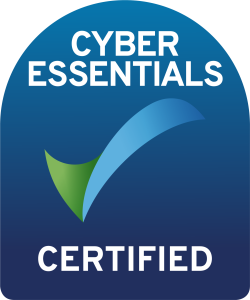Data security stands as a cornerstone of any successful business operation. Prioritising your data security not only safeguards your sensitive information but also enhances your customers trust and ensures regulatory compliance. Here’s how to effectively run and develop a business with a strong focus on data security:
Conduct a Thorough Risk Assessment:
Begin by conducting a full risk assessment to identify potential vulnerabilities in your business’s systems, processes, and infrastructure. Assess the types of data your business handles, the potential threats it faces, and the impact of a data breach. This assessment forms the basis for developing a robust data security strategy tailored to your specific risks and needs.
Develop a Data Security Strategy:
Based on the findings of your risk assessment, develop a data security strategy that outlines clear objectives, policies, and procedures. Include measures such as data encryption, access controls, regular security audits, and incident response protocols. Ensure that your strategy aligns with industry best practices and regulatory requirements relevant to your business sector.
Educate and Train Employees:
Your employees play a huge role in maintaining data security. Implement regular training programs to educate your staff on data security best practices, how to recognise phishing attempts, and how to handle sensitive information securely. Create a culture of awareness and accountability where employees understand their responsibilities in protecting data and reporting potential security incidents promptly.
Implement Strong Access Controls:
Control access to sensitive data through strong authentication methods such as multi-factor authentication (MFA), biometric authentication, or secure single sign-on (SSO) solutions. Enforce the principle of least privilege, ensuring that your employees only have access to the data necessary for their roles. Monitor access logs regularly to detect and respond to any unauthorised access attempts promptly.
Secure Data Storage and Transmission:
Utilise encryption techniques to secure data both at rest and in transit. Implement encryption protocols to protect sensitive information stored on servers or in the cloud. Use secure communication channels, such as SSL encryption, for transmitting data over networks. Choose reputable cloud service providers that prioritise your data security and compliance with industry standards.
Monitor and Respond to Security Incidents:
Incorporate monitoring tools to detect and respond to potential security incidents in real-time. Monitor network traffic, system logs, and user activities for suspicious behaviour or inconsistencies. Develop and regularly update your incident response plan that outlines procedures for containing, investigating, and mitigating data breaches or cyber-attacks. Conduct regular drills and simulations to test the effectiveness of your response plan.
Maintain Regulatory Compliance:
Stay up to date about data protection regulations and standards applicable to your business, such as GDPR, the Data Protection Act, or PCI DSS. Ensure that your data security practices and policies comply with these regulations, including data access rights, data retention policies, and breach notification requirements. Don’t forget to regularly review and update your compliance measures as regulations evolve.
In Summary:
Running and developing a business with a focus on data security requires proactive measures, continuous vigilance, and a commitment to protecting sensitive information. By conducting thorough risk assessments, implementing robust security strategies, educating your employees, enforcing strong access controls, securing data storage and transmission, monitoring for security incidents, and maintaining regulatory compliance, your business can mitigate risks and build a resilient data security framework.
At SSLPost, we specialise in providing secure communication solutions and encryption technologies that help businesses protect their sensitive data. Explore how SSLPost can support your data security initiatives and safeguard your business’s confidential information. For more information on data security best practices and solutions, visit SSLPost today.




